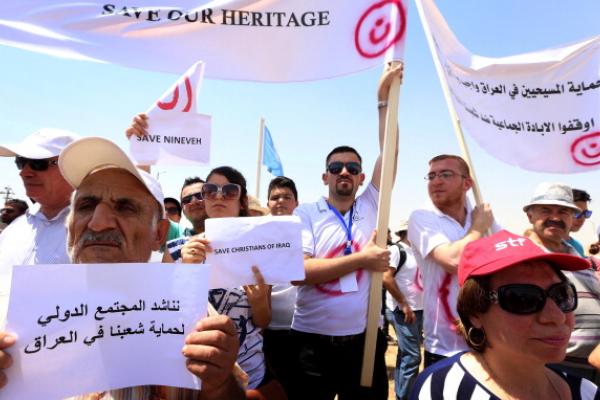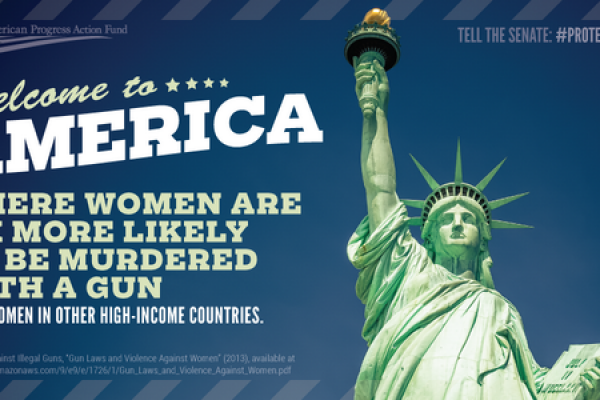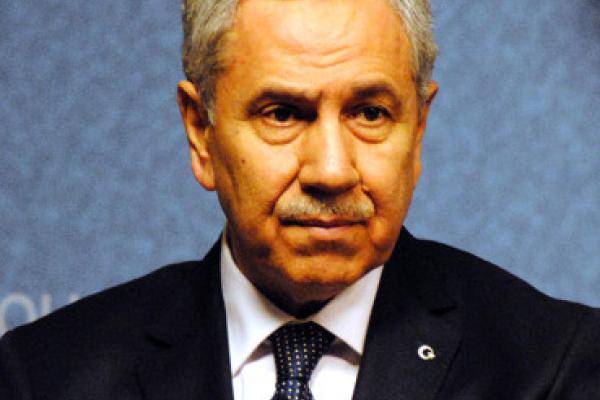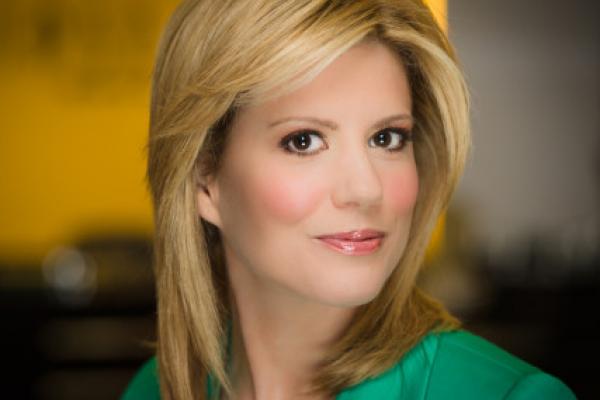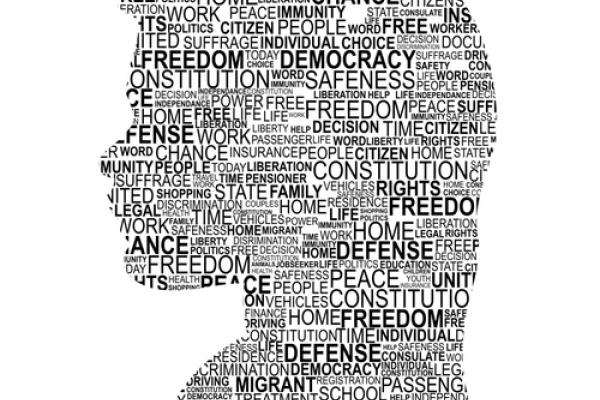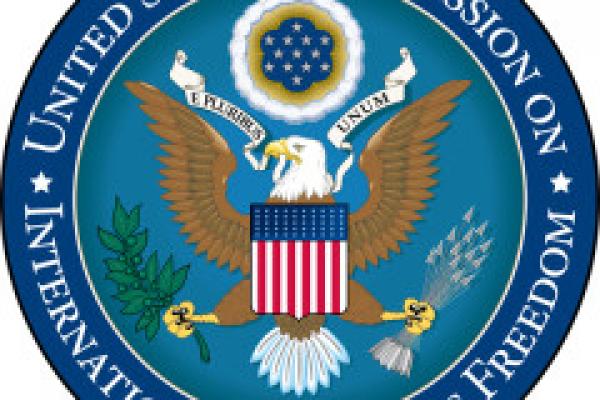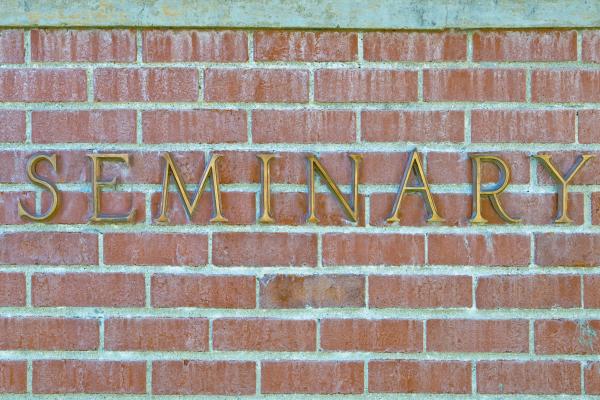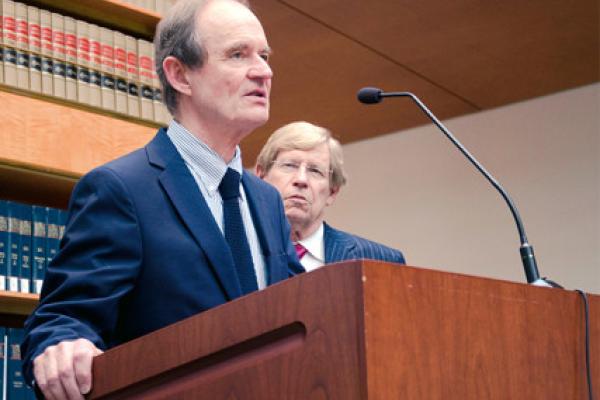When I first saw Americans joining in solidarity with Iraqi Christians through the #WeAreN hashtag and protest campaign, I was encouraged. Our team at Preemptive Love Coalition had been sounding the alarm about the targeted persecution of minorities in Iraq through private emails and social media messages for weeks, in between making urgent appeals in our effort to provide lifesaving heart surgeries for children amid the violence.
Most of our efforts were largely unsuccessful before the “Islamic State” gave Mosul’s Christians an ultimatum to (1) convert to Islam; (2) pay a submission tax; or (3) “face the sword.”
After Islamist militants began marking the homes of Christians in red paint with the Arabic letter “N” (Nazarene) for extermination or expropriation, we tried again to use our proximity to the problem in Iraq to provoke our friends in America to pay attention by tagging a photo “#WeAreN,” in which I had symbolically marked myself with an Arabic “N.”
But it was not strictly an act of solidarity with Iraqi Christians. We had the targeting of Turkmen, Yezidi, Shabak, and even Sunni Muslims in view, as well. #WeAreN was more about the marking of Christians; less about the marking of Christians.
Muslims and minorities across Iraq immediately sensed the gravity of the tactics deployed by the Islamic State: if one group is marked, we are all marked. If we stand by in silence today while others are marked for extinction, our time will come, and there will be no one left to stand for us.
In response, Muslims across Iraq joined together in protest, prayer, and viral photographs saying “We are Iraqi. We are Christians.”
Across the country, dangerous people with records of domestic violence, stalking, and aggression have no legal restriction keeping them from obtaining guns. Today, the Senate Judiciary Committee held a hearing to explore the intersection of domestic violence and gun violence. The hearing discussed major loopholes in the landmark Violence Against Women Act (VAWA), which successfully prohibited some convicted domestic abusers from gaining access to firearms. Yet even with the prohibitions in VAWA, abusers who don’t share a home with their intimate partner and abusers convicted of misdemeanor stalking charges are free to keep the weapons they have and to purchase new weapons.
“I am here today to speak for my sister Zina. I speak for Zina and her entire family because Zina is not here to speak for herself.”
Elvin Daniel, and NRA member and gun owner, lost his sister to domestic violence with a firearm and testified today in support of Sen. Amy Klobuchar’s (D-Minn.) S. 1290: Protecting Domestic Violence and Stalking Victims Act of 2013.
The tragic loss of Zina’s life is not an isolated incident. A study about the relationship between domestic violence and gun violence released by the Center for American Progress highlights how deadly this major loophole can be for thousands of women. The statistics are stunning:
- While 2.5 percent of men who are murdered are killed by a female intimate partner, 34 percent of women who are murdered are killed by a male intimate partner.
- Of all the women killed by male intimate partners from 2001-2012, 55 percent are killed with a firearm.
- More women (6,410) in the United States have been killed by a significant other with a firearm from 2001-2012 than U.S. troops have died in the wars in Iraq and Afghanistan.
Many Turkish women were doubled over with laughter Tuesday after their country’s deputy leader said in a speech assailing “moral corruption” that women should not laugh in public and should not talk on their mobile phones so much.
Social media lit up as news of the speech spread, with hundreds of Turkish women posting photos of themselves and friends laughing in public places. Popular hashtags included #kahkaha (laugh) and #direnkahkaha (resist, laugh).
The Hurriyet Daily News offered this excerpt from Arinc’s remarks: “Chastity is so important. It is not only a name. It is an ornament for both women and men. [She] will have chasteness. Man will have it, too. He will not be a womanizer. He will be bound to his wife. He will love his children. [The woman] will know what is haram [sin] and not haram. She will not laugh in public. She will not be inviting in her attitudes and will protect her chasteness.”
I eat, sleep, and breathe faith and politics; it is my passion and calling. From 9-5 each weekday, I direct communications and advocacy for Sojourners, moving around Washington, D.C. for various meetings, engaging with reporters and the media, and planning advocacy strategies around pressing justice issues. Then I turn off my computer and walk out the door. But instead of going home, I’m usually off to another meeting that has little to do with politics and everything to do with faith.
I’m a bi-vocational pastor, and I spend 15-20 additional hours working in a local congregation alongside several clergy colleagues, who themselves are a mix of full-time and part-time ministers. Serving in a church keeps me rooted. It provides perspective when the dysfunctions of Washington threaten to consume me. Helping people discover faith and integrate it into their lives renews and enlivens my soul.
Part of me pretends that I’d be spending this much time worshiping on Sunday morning and hanging out with my fellow young adults anyway, so I might as well be polishing my ministerial skills. But when I’m honest, I know it isn’t close to the same thing. I am way more invested in people’s lives – their joys and concerns – and the life of a particular community than I otherwise would be as “just a member of the congregation.” It is a demanding role that can be emotional, mentally and spiritually draining at times, but I love every minute of it. This is what I was made to do. Being a pastor is my identity. This calling is fundamental to who I am and how I understand myself in the world.
The number of bi-vocational ministers is increasing rapidly. Many pastors who work full-time jobs and serve in congregations part-time receive little or no pay for their church service. This trend has been described as “the future of the church” and extolled because the model is a return to “the original church” that will “enliven congregations.”
Iraq’s Christians are begging the world for help. Is anybody listening?
Since capturing the country’s second largest city of Mosul in early June, the Islamic State, formerly known as ISIS, has ordered Christians to convert to Islam, pay taxes levied on non-Muslims, or die. The extremist Sunni group is also persecuting and murdering Turkmen and Shabaks, both Muslim religious minorities.
Human rights lawyer Nina Shea described the horror in Mosul to me: “[The Islamic State] took the Christians’ houses, took the cars they were driving to leave. They took all their money. One old woman had her life savings of $40,000, and she said, ‘Can I please have 100 dollars?’, and they said no. They took wedding rings off fingers, chopping off fingers if they couldn’t get the ring off.”
“We now have 5,000 destitute, homeless people with no future,” Shea said. “This is a crime against humanity.”
For the first time in 2,000 years, Mosul is devoid of Christians. “This is ancient Nineveh we are talking about,” Shea explained. “They took down all the crosses. They blew up the tomb of the prophet Jonah. An orthodox Cathedral has been turned into a mosque. … They are uprooting every vestige of Christianity.” University of Mosul professor Mahmoud Al ‘Asali, a Muslim, bravely spoke out against the Islamic State’s purging of Christians and was executed.
In a perfect world, women can choose to be whomever they want. But there is not yet a country on earth in which that is actually true. That is why we need feminism.
That there’s disagreement over how we talk about women’s empowerment in the U.S. isn’t surprising — feminism is a collection of unique people with unique visions of a good life, trying to figure out how to preserve past and present good, correct past and present wrongs, and forge a new way ahead together.
But it is tragically, perennially clear why speaking up against male-controlled narratives in church or school or novels or movies or business or government, against generations of excused behavior for men and oppression for women, against ongoing systemic injustice is still so crucially necessary.
From reading what these “anti-modern-feminists” have written, I don’t believe any of them would take umbrage with that. It’s a pity, then, they are rejecting the term feminism — their challenges would be great additions to the dialogue. More education and conversation about what feminism is, and how we do it, and where it can go, is clearly needed. Without it, I’m not at all sure how much farther forward we’ll be able to go.
Last week, here in Kabul, the Afghan Peace Volunteers welcomed activist Carmen Trotta, from New York, who has lived in close community with impoverished people in his city for the past 25 years, serving meals, sharing housing, and offering hospitality to the best of his ability. Put simply and in its own words, his community, founded by Dorothy Day, exists to practice “the works of mercy” and to “end the works of war.” We wanted to hear Carmen’s first impressions of traveling the streets of Kabul on his way from the airport to the working class neighborhood where he’ll be staying as the APVs’ welcome guest.
He said it was the first time he’d seen the streets of any city so crowded with people who have no work.
Carmen had noticed men sitting in wheelbarrows, on curb sides, and along sidewalks, unemployed, some of them waiting for a day labor opportunity that might or might not come. Dr. Hakim, the APV’s mentor, quoted Carmen the relevant statistics: the CIA World Fact Book uses research from 2008 to put Afghanistan’s unemployment rate at 35 percent — just under the figure of 36 percent of Afghans living beneath the poverty level. That’s the CIA’s unemployment figure. Catherine James, writing in The Asian Review this past March, noted that “the Afghan Chamber of Commerce puts it at 40%, the World Bank measures it at 56% and Afghanistan’s labor leaders put it at a shocking 86%.”
An independent religious freedom watchdog panel has welcomed the State Department’s annual religious freedom report and its list of the world’s worst offenders, which had laid dormant for three years.
The list of “countries of particular concern” had remained unchanged since 2006 — and hasn’t been formally issued by the State Department since 2011 — when Burma, China, Eritrea, Iran, North Korea, Saudi Arabia, Sudan and Uzbekistan were cited.
In April, the U.S. Commission on International Religious Freedom recommended that the list be doubled to include Turkmenistan, Tajikistan, Vietnam, Pakistan, Syria, Iraq, Nigeria, and Egypt. Turkmenistan was the only new addition to this year’s CPC list, bringing the total to nine countries.
The State Department and the independent USCIRF have often been at odds on who makes the list of worst offenders, and in a statement, USCIRF noted the “disappointing omission” of Pakistan in particular.
“Pakistan represents the worst situation in the world for religious freedom for countries not currently designated by the U.S. government as CPCs,” said USCIRF Chair Katrina Lantos Swett.
Paul said, "the foolishness of the cross" not "the stable middle-class lifestyle," if you want my opinion on seminary education, the changing economy, and baptismal identity in general. We bear a responsibility to care for one another as Christians (and beyond) that we have abdicated to the persnickety "marketplace." It's time to talk about holy poverty again, I think.
I can hear my free church friends and colleagues now, "But we don't take a vow of poverty!" It's true. We don't. We remember this historical movement away from the monasteries and the cathedrals, the parish system and the state church. This is an issue of ecclesiology, no question. What I wonder, however, is if in our attempts to not fall into the traps of the past, we simply have settled on the marketplace as our model for ecclesiology. I assume we have.
My degree is a "professional degree," yet within its conceptual framework the notion that I am "professed" is easily lost. I am not called to earn, but to labor, to serve. My work is "worth" nothing. Instead, it is a response to a vocation that in many ways we all share. The wealth of the community affords me the opportunity to respond to that shared call in a particular way. I am not your employee. I am your pastor. I am poor. Any wealth I may posses comes directly from the pockets of others.
A federal appeals court panel in Virginia became the second one this summer to strike down a state ban against same-sex marriage Monday, making it more likely that the Supreme Court will settle the issue as early as next year.
“We recognize that same-sex marriage makes some people deeply uncomfortable,” said Judge Henry Floyd, originally appointed a district judge by George W. Bush and elevated to the circuit court by President Obama. “However, inertia and apprehension are not legitimate bases for denying same-sex couples due process and equal protection of the laws.”
The circuit court has jurisdiction over Virginia, Maryland, West Virginia, North Carolina and South Carolina. The panel’s decision will not take effect until at least Aug. 18 while circuit clerks defending the state’s ban decide whether to appeal to the full appellate court or the Supreme Court.
Like the first appeals court panel to rule on the issue this year in Utah and Oklahoma, the three-judge panel was deeply divided.
